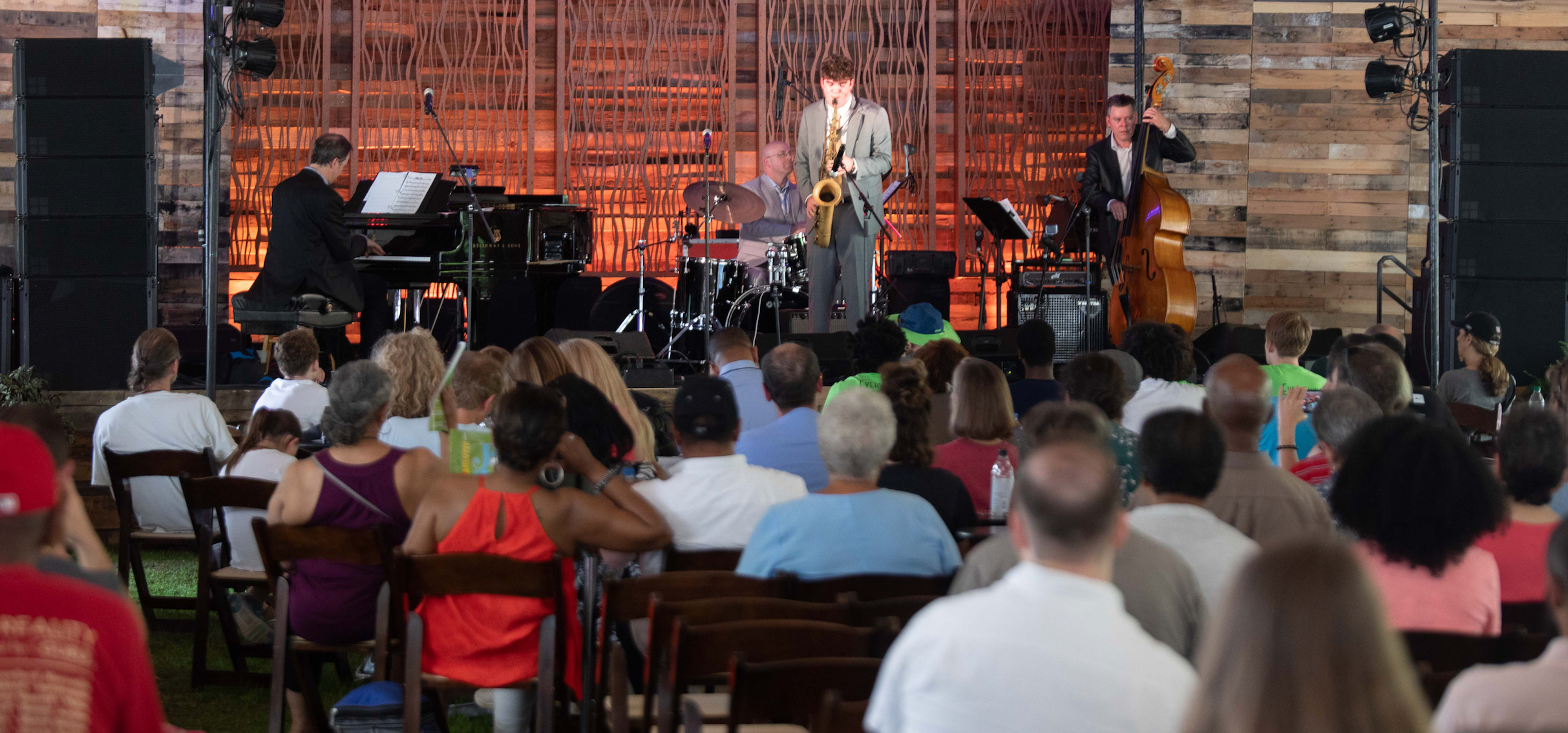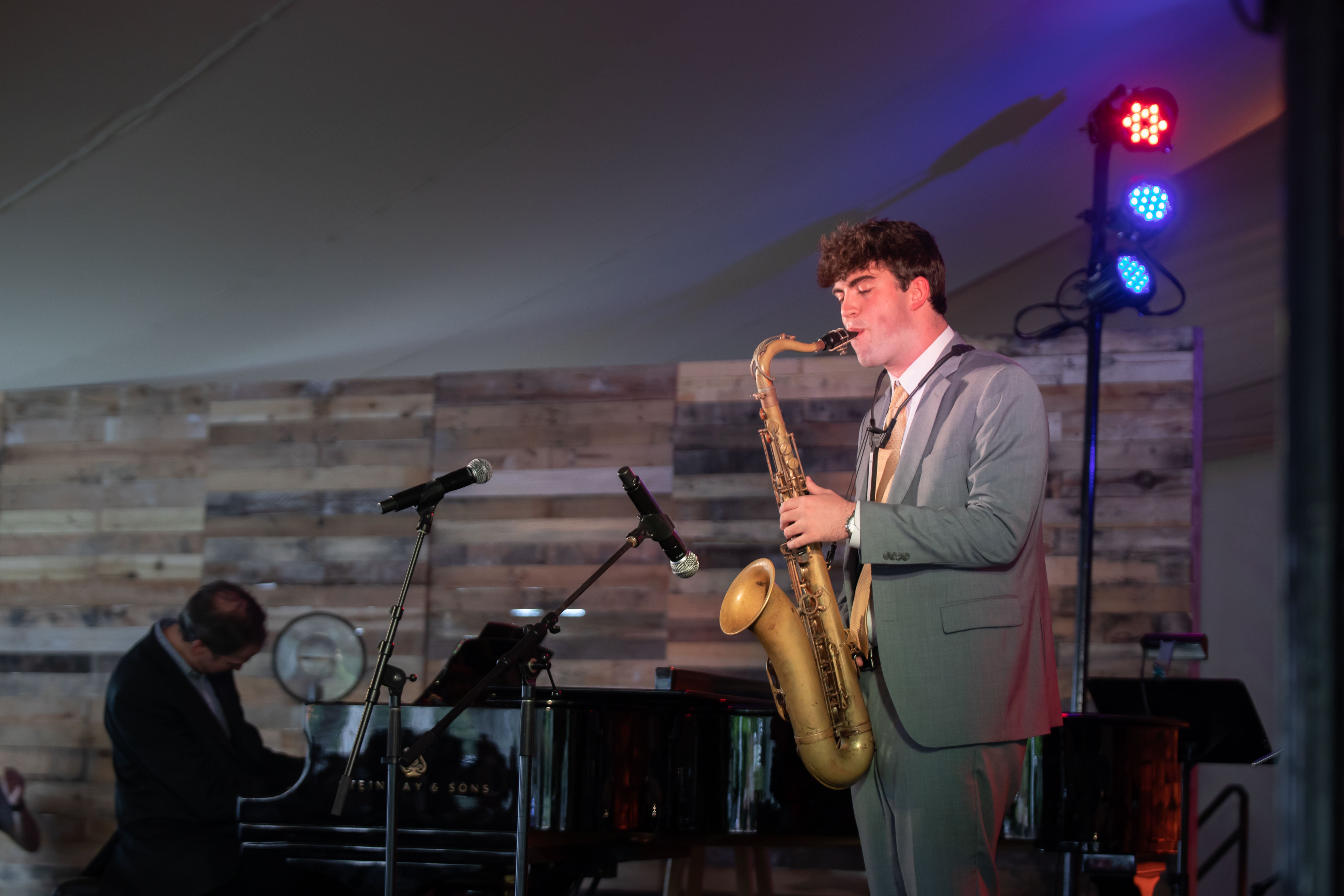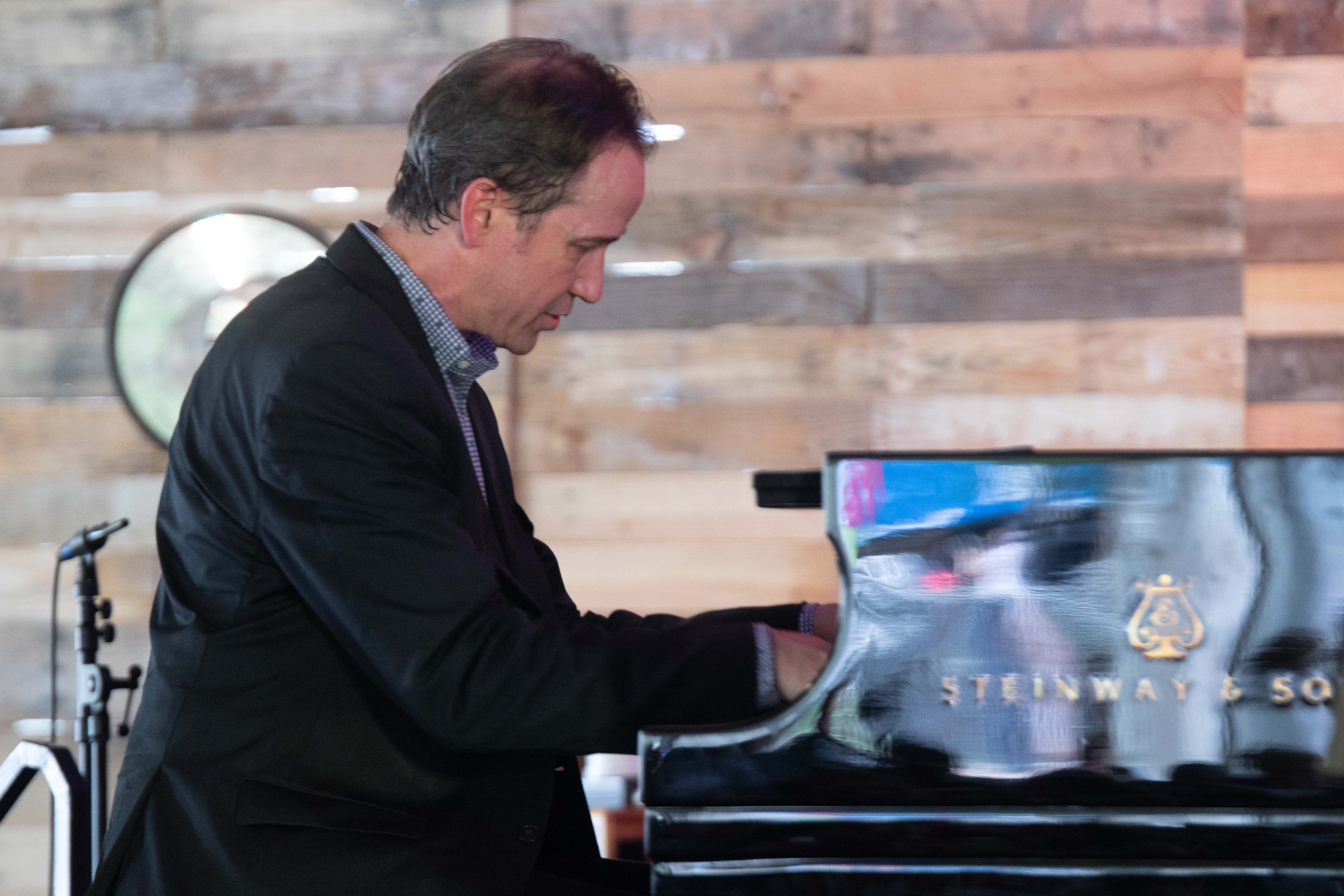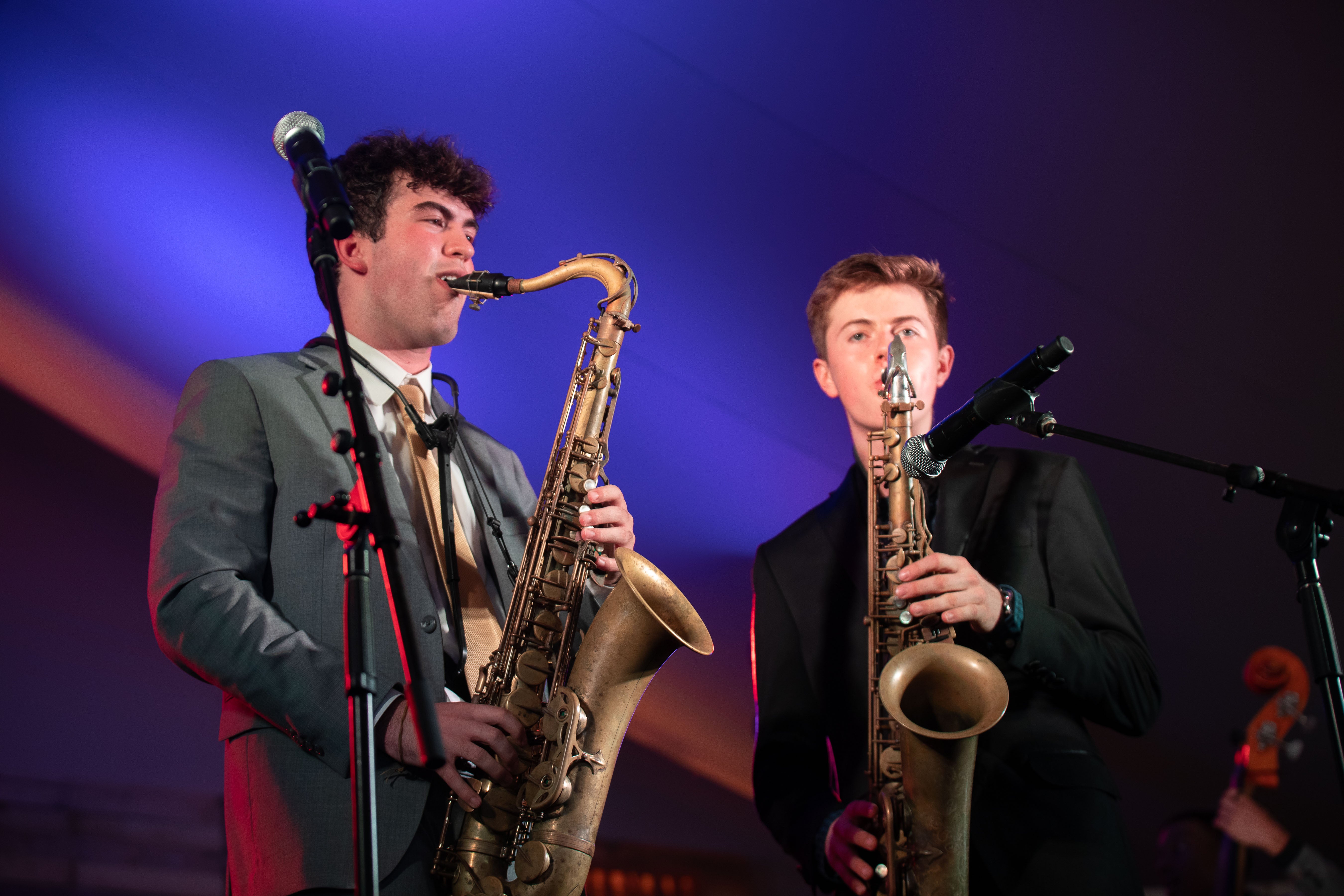
Loonis McGlohon Young Jazz Artist Competition Shines Light on Local Talent - Announcing the Winners and a Glimpse Backstage at the Competition
Another Charlotte Jazz Festival has come and gone. (We miss it already!) But one of the best aspects of the weeklong celebration is that along with bringing in national acts, it also reminds us of the great talent all around us, by providing a platform for local musicians to shine. Nowhere is this more evident than with the annual Loonis McGlohon Young Jazz Artist Competition, open to musicians ages 14 - 20 years old throughout the Carolinas. This year’s final six finalists performed on May 4 in front of a panel of world-renowned musicians from Jazz at Lincoln Center Orchestra and an enthusiastic crowd under The Jazz Garden Tent at Romare Bearden Park.
“The quality is very high and very fresh too,” said saxophonist and vocalist Camille Thurman, who served as one of the judges and kicked off the festival earlier in the week, performing with The Darrell Green Trio and special guest Wynton Marsalis. “The style, the approach, their uniqueness and individualism is very present and really refreshing to see.”

Top honors went to Roland Burnot of Cedar Ridge High School (Hillsborough) who plays tenor saxophone. Burnot won a $3,000 prize to continue his music education. Next year, he will attend UNC Greensboro with a focus in Jazz Studies. Matthew Finley of Panther Creek High School (Cary), also on tenor sax, took 2nd Place and the $2,000 prize. Third place and a $1,000 prize went to Lovell Bradford on bass from North Mecklenburg High School (Charlotte). Prize money was generously underwritten by The Leon Levine Foundation. The event was also made possible thanks to Charlotte Jazz Festival education sponsor James, McElroy & Diehl.
Other finalists included Emerson Borg on trumpet from Enloe High School (Raleigh), Jonah Smith on piano (Raleigh), and Aron Stornaiuolo on guitar and vocals from South Mecklenburg High School (Charlotte).
CONGRATS to our Loonis McGlohon Young Jazz Artist Competition winners! Check out this impromptu performance of them all playing TOGETHER moments after receiving their awards!
— Blumenthal Performing Arts (@BlumenthalArts) May 4, 2019
1st Place - Roland Burnot - 🎷
2nd Place - Matthew Finley - 🎷
3rd Place - Lovell Bradford - 🎼 pic.twitter.com/ZCirJ6vAKl
AN INTENSE BUT REWARDING EXPERIENCE
During the competition, students took the stage with a small ensemble of professional musicians led by local jazz pianist Noel Freidline. Each student performed two songs of their choice from a list of well-known tunes. They had only 15 minutes to rehearse their material ahead of time with the other musicians. Students were also expected to demonstrate their ability to improvise several times during their performance.

“It’s not like a math competition where there’s one right answer,” said Freidline to the crowd, reminding them that these young musicians were taking big risks on stage.
For Finley, who was attending the competition for the first time, the experience was initially nerve wracking. “But then getting on the stage everything kind of washed away,” he said. “It was fun.”
LEARNING ABOUT JAZZ FROM THE BEST IN THE BIZ
Audience members had the unique chance to listen in as the judges offered their critiques, explaining what worked well with performances and where they could be improved. According to Thurman, the panel evaluated such factors as the quality of sound produced, the students’ “feel for” the music (i.e., were they confident in their playing and did they demonstrate that to the audience?), as well as their ability to interact with the band
Feedback ranged from reminding students to take their time on solos and create contrasts in improvised sections, to focusing on their intent in storytelling and keeping the playfulness of a song in mind. The judges often mentioned specific recordings for students to explore—having that knowledge is key to improving and learning the art.
“What makes jazz unique is it wasn’t by a textbook,” said Thurman following the competition. “…. When we perform, we’re basing [it] off of what we heard from the greats and also we’re taking what we heard and figuring out how we can apply it to what we’re doing and also make it our own.”
Receiving critiques from the esteemed panel of musicians was a highlight for the competitors too.
“It’s always extremely helpful,” said Burnot, who has played saxophone for the last seven years. “Hearing stuff from people like [saxophonist and clarinetist] Victor Goines, who has been an established musician for so long. It’s just great to hear something that he wants you to do. It’s like a dream come true…”

For Branford, the bassist, the opportunity to network and improve as a performer inspired him to compete for his second year in a row. “It’s always a good experience to connect with other musicians that are our age,” he says. “... It’s a great experience. Even if you don’t place and you don’t win, it still puts you at a place that is higher than if you didn’t go into the competition.”
For young musicians who are just getting started, Thurman advises them to take the time to invest in their craft by practicing, studying, asking as many questions as they can and getting a great mentor. “That’s the most important thing you can do because you can learn all these great things by yourself listening and studying… but it’s also good to check in with people who have already done it... and can help you along the way in making the right decisions, and telling you what you should check out or giving you great advice.”